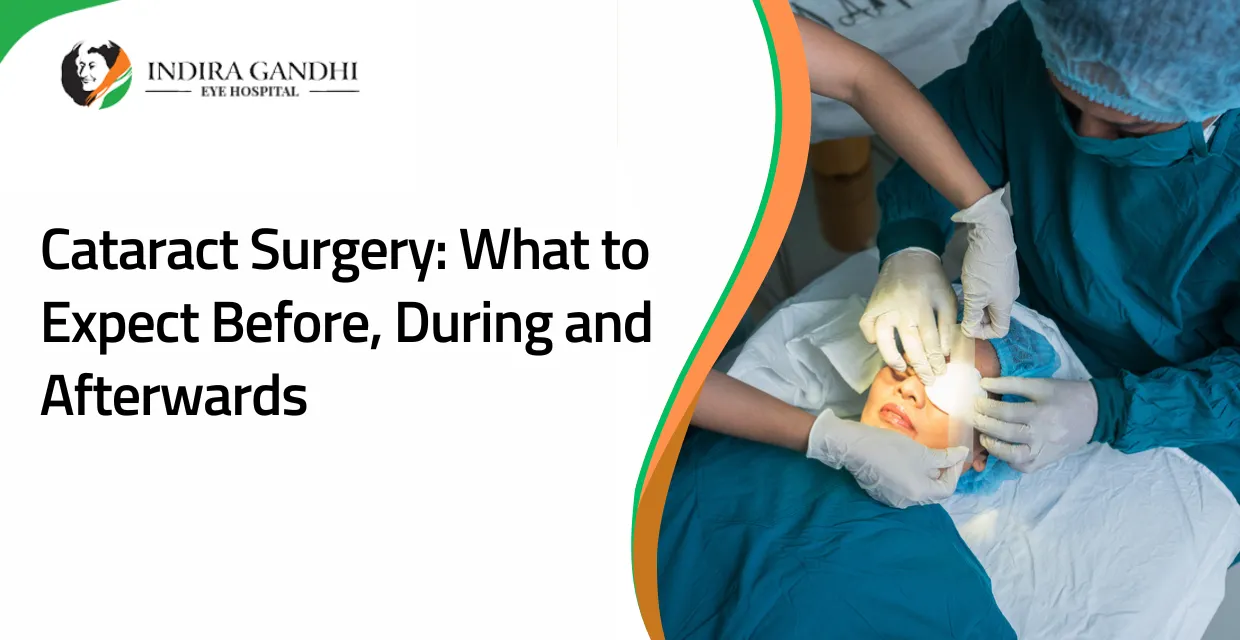A cataract occurs when the eye's natural lens becomes cloudy, leading to blurred vision, difficulty seeing at night, and increased sensitivity to glare. Fortunately, cataract surgery is a highly effective treatment option that can restore clear vision and improve quality of life.
Who might need cataract surgery?
The right candidate for cataract surgery is someone who experiences vision problems, such as blurred vision, difficulty seeing at night, or increased sensitivity to glare, due to the presence of cataracts. It is crucial to consult with an ophthalmologist who can evaluate the severity of the cataract and determine if surgery is the appropriate treatment option. Factors such as overall eye health, medical history, and lifestyle are considered to ensure that the patient can undergo the surgery safely and benefit from the procedure.
Preparing for Cataract Surgery
Before your surgery, your ophthalmologist will conduct a comprehensive eye examination to assess the severity of your cataract and determine the most suitable treatment plan. They will discuss the procedure, address any concerns you may have, and provide you with pre-operative instructions. These instructions may include:
Medication adjustments: Your doctor may advise you to temporarily stop certain medications that could interfere with the surgery or increase the risk of bleeding. Be sure to follow their instructions carefully.
Fasting: You will be asked to refrain from eating or drinking anything for a specified period before the surgery. This is necessary to ensure your stomach is empty, reducing the risk of complications related to anesthesia.
Arranging transportation: Since you cannot drive immediately after the surgery, arranging transportation to and from the hospital is crucial. Consider asking a family member or a friend to accompany you for support.
The Cataract Surgery Journey
Day of Surgery
On the day of your cataract surgery, arrive at the hospital at your scheduled time. The procedure typically takes about 15 to 30 minutes, and you can expect the following steps:
Anesthesia: You will be given local anesthesia to numb the eye, ensuring you remain comfortable throughout the surgery. In some cases, you may receive a sedative to help you relax.
Incision: The surgeon will create a small incision on the side of your cornea, allowing them to access the cloudy lens.
Lens Removal: The surgeon will break up the cataract and gently remove it from the eye using advanced techniques such as phacoemulsification. This process involves using ultrasound waves or laser energy to dissolve the cloudy lens and suction it out.
Lens Implantation: An artificial intraocular lens (IOL) will be inserted once the cataract is removed. The IOL will be carefully positioned to restore clear vision, and its type will be determined based on your specific needs (e.g., monofocal, multifocal, or toric).
Recovery Period
Following the surgery, you will be taken to a recovery area, where your eye will be monitored for immediate complications. Here's what you can expect during the recovery period:
Eye Shield: A protective shield will be placed over your eye to prevent accidental rubbing or injury. Your surgeon may also provide specific instructions on when and how to wear the shield.
Rest: Taking it easy and allowing your eye to heal correctly is essential. Your doctor may recommend avoiding strenuous activities, heavy lifting, or bending over for a few days.
Eye Drops: Your surgeon will prescribe a series of eye drops to prevent infection and inflammation and promote healing. It is crucial to administer these drops as directed, following the recommended dosage and frequency.
c) Post-Operative Care
After the initial recovery period, you will be scheduled for follow-up appointments with your ophthalmologist. These visits are essential for monitoring your progress and ensuring your eye is healing correctly. Your doctor will provide specific instructions on post-operative care, which may include:
Medication: You may be prescribed additional eye drops or oral medication to aid in the healing process. It is essential to take these medications as prescribed and report any unusual symptoms to your doctor.
Vision Improvement: As your eye heals, you will likely experience a gradual improvement in your vision. However, it is normal to have some temporary blurry or fluctuating vision during the healing phase.
Lifestyle Adjustments: Your doctor may recommend certain lifestyle adjustments, such as wearing sunglasses to protect your eyes from bright sunlight and avoiding activities that could stress your eyes, like swimming or vigorously rubbing your eyes.
Conclusion:
By choosing the best eye hospital in India, following pre-operative and post-operative instructions, and attending follow-up appointments, patients can confidently embark on their cataract surgery journey, knowing they are in the hands of skilled ophthalmologists who specialize in providing the best care possible. Don't let cataracts hinder your vision any longer; take the first step towards clearer sight and a brighter future.


